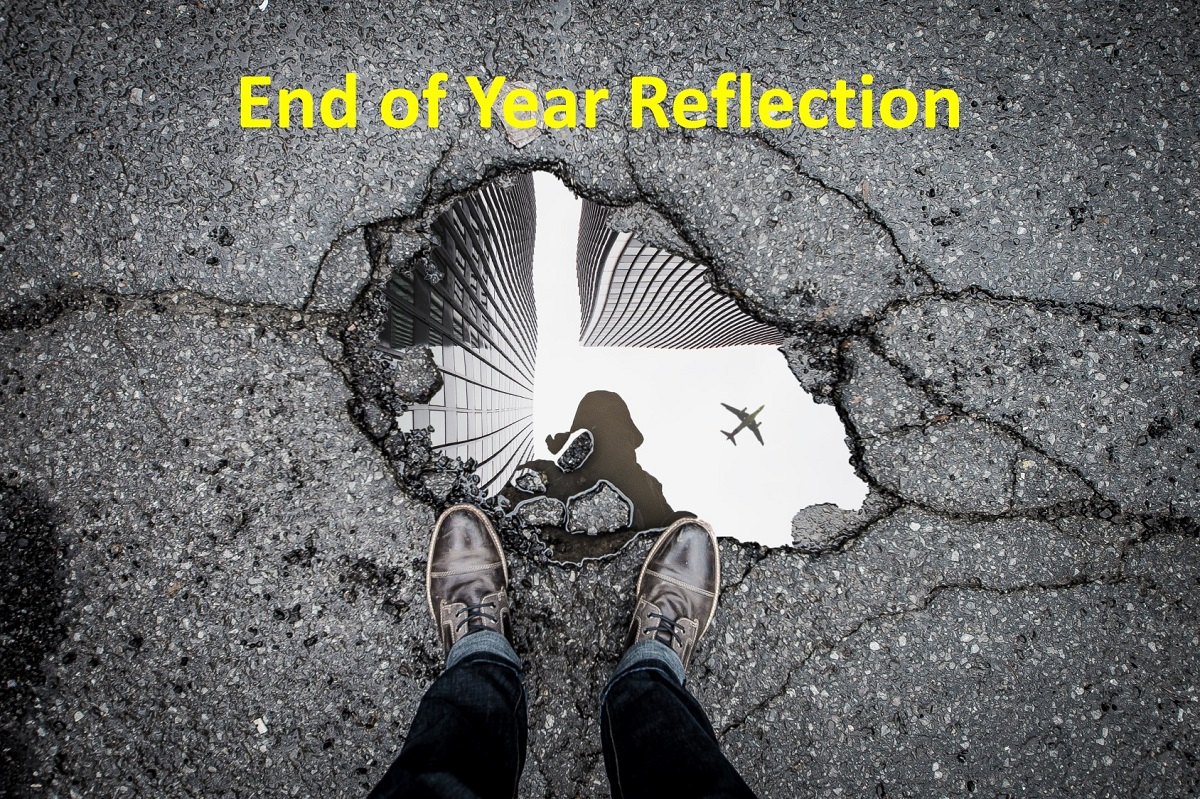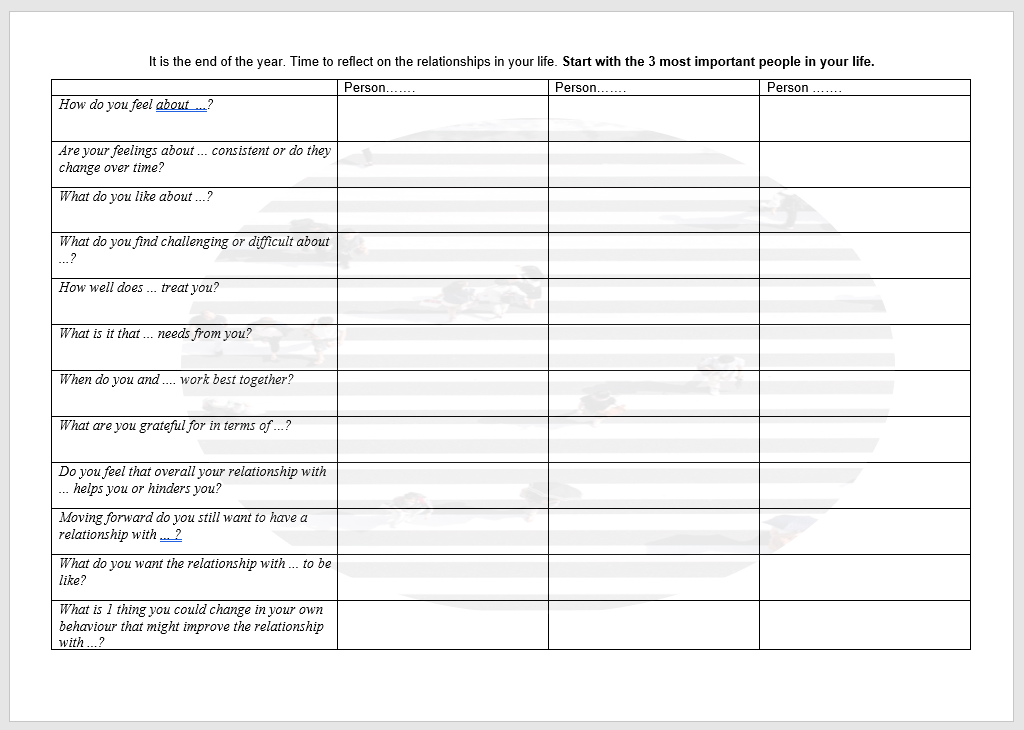
I revived this exercise from last year, cause I think it is still as relevant as it always was….
The end of a year is a time for reflection (and also a time for new pants).
A time to look back at the year that has been, evaluate how it went, and put in place some plans for the following year.
The typical process that a lot of us go through for this is the ‘new year’s resolution’ where at midnight on the 31st December we all decide that in the following year we are going to:
* lose weight
* get ‘healthier’
* do that ‘project’ we’ve been putting off
* go travelling
* eat fewer donuts
* start saving more money
* read more
* take up a new hobby
Usually by the next day we’ve either forgotten them, or are face-first into a donut before realising we’ve broken them already.
I am going to suggest instead that we (including me) undertake a more comprehensive self-reflection exercise prior to New Year’s Eve. This exercise was inspired by a throwaway comment I heard someone say on a podcast I was listening to recently (I don’t remember which one). However the concept stuck with me and I turned it into this exercise.
The exercise invites you to consider all the relationships in your life. This includes your relationships with people (e.g. friends, family, colleagues), but also your relationships with other elements of your life: your study, your work, your body, your mind, the world and your future.
It sounds a bit strange at first to consider yourself as having a ‘relationship’ with something like your study or your job. But the kinds of questions that you might ask yourself about your relationship with a person, can work quite well to help you understand your feelings towards other elements of your life. For example, imagine putting the names of people you know in the following questions. Then also imagine putting the words ‘your study’ or ‘your work’ or ‘your body’ into those questions.
How do you feel about …?
Are your feelings about … consistent or do they change over time?
What do you like about …?
What do you find challenging or difficult about …?
How well does … treat you?
What is it that … needs from you?
When do you and …. work best together?
What are you grateful for in terms of …?
Do you feel that overall your relationship with … helps you or hinders you?
Moving forward do you still want to have a relationship with … ?
What do you want the relationship with … to be like?
What is 1 thing you could change in your own behaviour that might improve the relationship with …?
This exercise is intended to get you to reflect on how engaged and connected you feel with the different parts and people in your life. You are then encouraged to consider what is 1 thing you could change that would make you feel more engaged and connected to these elements of your life.
To make completing this self-reflection exercise a little easier, I’ve put it together as a worksheet that is attached to this post. I’ve attached it as a word document so you can either print and write on it (as I did), or fill it in on your computer.
The worksheet invites you to consider up to 6 people in your life, as well as your study, work (if relevant), body, mind, world and future. The choice of people is up to you. I focused on people that I was either very close to, or people that played a significant part in some aspect of my life (e.g. a boss). There are 12 questions that invite you to reflect on these people and elements of your life. I found the exercise was quicker than I thought, because I focused on writing down my initial response to each question, and not overthinking it.
Overall I found the process revealing in terms of identifying those areas of my life where I felt things were working well, and those parts of my life where I was ambivalent. Confronting that ambivalence meant thinking specifically about what I could do to modify those situations. Too often we rely or require other people to change or for ‘the world to change’. But the behaviour of others, or the functioning of the world is often out of our control. Focusing on your own behaviour doesn’t mean taking blame for things that others have done, but it does mean reminding yourself that you have the ability to respond differently.
I also found it interesting to consider slightly weird questions like ‘what is it that my job needs from me?”. Imagining my job was a person and considering their needs made me realise that I needed to listen more at work to others, and not always be so ‘gung ho’ and self-driven in my approach. Whilst being self-driven is generally a good thing, I run the risk of alienating myself from others at work, by being focused only on my needs and goals.
My hope is that through this process you will arrive at a few changes you can make in 2019 that are actually more intimately connected to your life, than the somewhat cliche fallback options we usually choose when considering ‘new year’s resolutions’.
Warning: It is possible that in doing this exercise, you will realise there are relationships in your life that aren’t working well. This can be a little confronting if you’ve been avoiding thinking about it until now. But that discomfort is by no means a bad thing. If the exercise gets you thinking about how you can change or improve those relationships, this is an important step forward. This exercise is intended to dig deeper than a simple ‘new year’s resolution’. That extra depth might mean some discomfort, but it also means greater likelihood of it actually helping you change.
Click image to access the worksheet:


